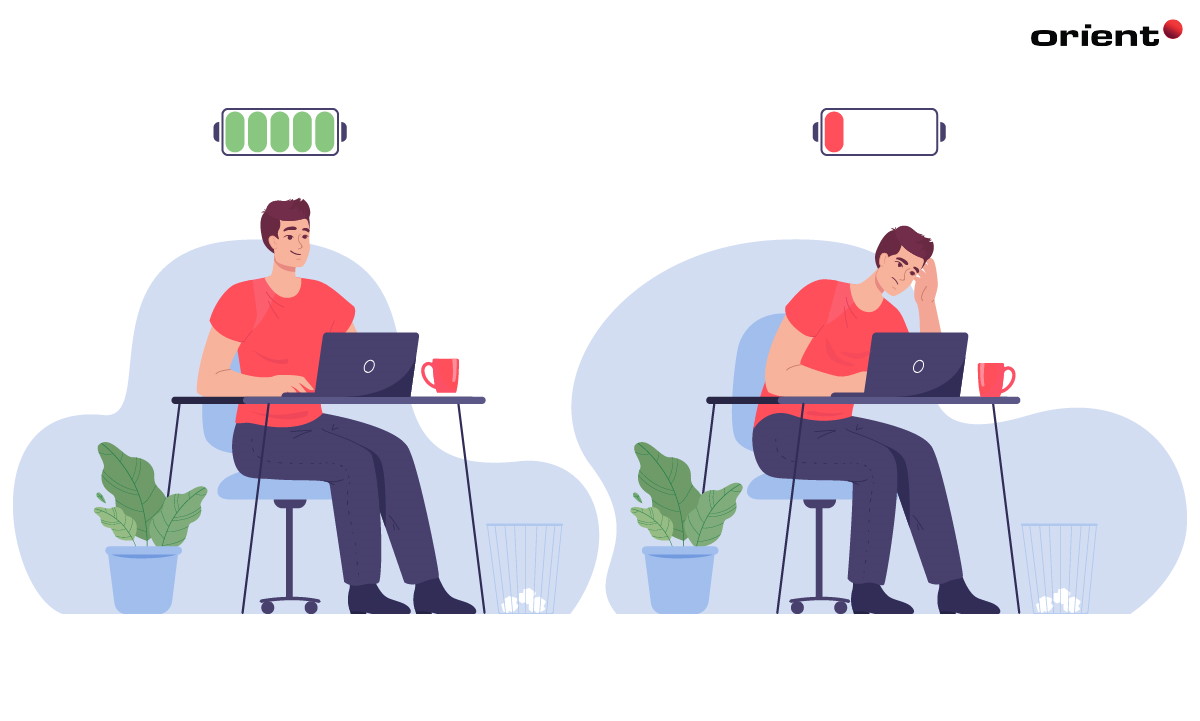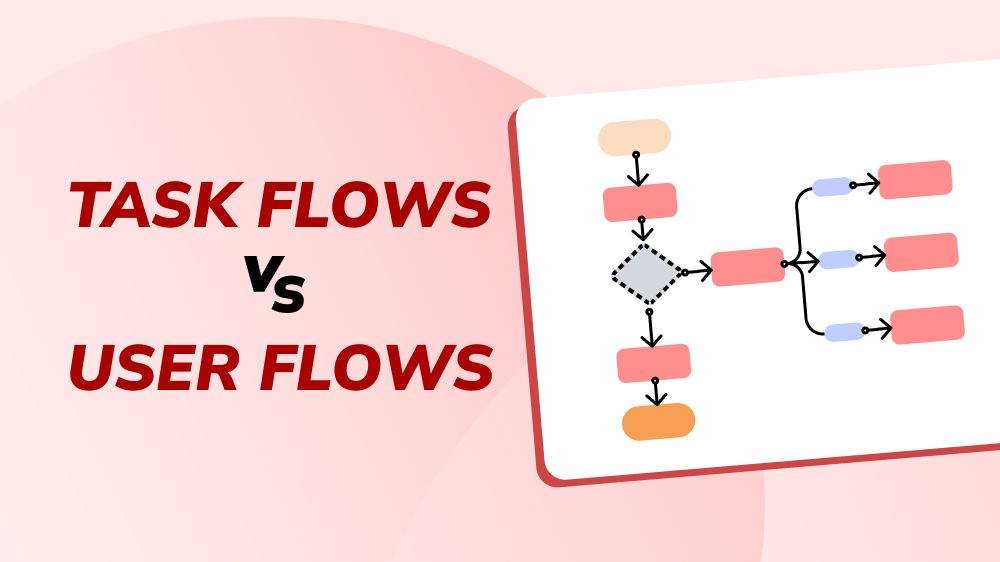Software Engineer Burnout: Causes and Solutions

Content Map
More chaptersA 2021 study by Haystack Analytics found that 83% of developers suffered from burnout. This is a huge number. Why is software engineer burnout becoming increasingly common? What is the reason behind it? What is developer burnout?
This article answers these questions and offers some advice to tackle this phenomenon.
What Is Employee Burnout?
Let’s define employee burnout. The World Health Organization (WHO) refers to employee burnout as an occupational phenomenon. It is brought on by ongoing work stress that has not been effectively managed. Burnout has three characteristics:
- Weariness or depletion of energy;
- A growing mental detachment from one’s employment;
- Thoughts of pessimism or cynicism towards one’s career;
- A decreased level of professional efficacy.
Are You Experiencing Burnout?
No matter how big or small your company is, burnout is a very real daily challenge for developers. Common symptoms of burnout include:
Less engagement at work
One of the first signs to look out for is disengagement at work. Most software engineers are passionate. They are often hungry to learn new things and look for constant ways to get better at their job. They also love to help where they can. In short, developers love what they do.
However, that is only the case when they are not experiencing burnout. Burnout takes away all the flame, passion, and drive - and this translates directly into how they write codes or interact with their teammates. They may find themselves not only lacking the motivation to start the job, but also no longer care about feedback.
Experience of fatigue
Physical and mental fatigue are warning signs of software engineer burnout. You may experience changes in your sleeping habits - you may feel like you need more midday naps. It is harder to fall asleep at night, even though you have probably gone through many nights without proper sleep.
Physical fatigue is only the beginning. From there, it is easy to experience mental fatigue. You will find it hard to concentrate. You then become disorganized, lose track of the tasks you are doing, or zone out multiple times.
You may find it frustrating to be unable to complete the tasks with the same productivity and focus as before. You might even express irritation toward your coworkers.
Reduction in the quality of work
Burnout in developers may cause a reduction in the quality of work. Feeling unmotivated by the tasks ahead, or feeling disengaged at work, might be the reasons behind this. From there, the coding speed slows down significantly, or you just want to get the work over with. Lastly, you may make more mistakes, some of which might even be the ones you normally avoid or catch easily at your optimal state.
Procrastination
It becomes harder and harder for you to actually sit down at your table and start doing work. You would much rather prefer another quick scroll through social media, small talks with friends and colleagues, or another midday nap. Sitting down to work becomes a dreadful thought.
This is a sign of burnout, or that you are approaching burnout. It is true that everyone procrastinates from time to time, but if procrastination becomes a trend, it is likely you are suffering from burnout.
Reasons Behind Developer Burnout
Understanding the causes of developer burnout is one of the first steps in acknowledging and tackling the issue.
Due to the demanding nature of the job and the long hours a developer has to put in, they are quite vulnerable to burnout. There are numerous causes behind software engineer burnout, but in this article, we will take a look at them in two groups: external and internal causes.
External causes of software engineer burnout
Most external reasons for developer burnout has to do with bad management. These are also the same reasons why a software project may fail. So make sure your tech team management is doing a good job managing your software engineers - they are crucial not just for your project success, but also for employee satisfaction.
Monotonous job
Repeating the same kind of job in the very same spot day after day can feel as if you are not moving forward or progressing. Even when a developer loves his or her job, writing the same kinds of codes day after day can be demotivating. It is easy to feel stuck, demotivated, less engaged, and then eventually, burnout.
Bad programming culture or working environment
Toxic working environment like bullying, gaslighting, or manipulation surely takes a toll on your mental health and keep you from even wanting to go to work. Bad communication, no clarity in roles, or poor leadership also can be possible factors contributing to burnout.
It is always comforting to have a software team that gives you constructive feedback, provides you with the recognition you need, and cares about your personal growth.
Tight, unrealistic deadlines
Software engineers often face strict, even unrealistic deadlines. Not only are they unrealistic, but they also cause frustration, poor results, and inefficiency. The long hours spent sitting and staring at the glowing blue screen generate a high level of stress.
If not addressed properly, chronic stress can result in burnout.
Lack of control
If a developer feels as if he has no influence or is unable to make a contribution during the decision-making process, there will be a detachment from the company’s vision or mission. Further down the line, this creates a gap between the employee and managers and results in tension.
Internal causes of burnout
This is not to blame the developers for the burnout they are suffering from, but certain internal traits or habits do contribute to their likelihood of going through burnout. Some of these may be:
A lack of healthy habits
One of the most common causes of burnout is the unhealthy habit of sitting at your desk for eight hours straight, staring at a glowing screen. The overwhelming amount of tasks and deadlines might have put many in the position of compromising their own health and sleep quality, to deliver the results a manager or client has asked for.
Overworking oneself has never been a sustainable way of doing one’s job. It only pushes you closer to mental and physical fatigue which ultimately leads to burnout.
Value conflict
A misalignment of the organization’s, the team’s, and individual values can quickly result in chronic stress. A constant internal struggle between maintaining one’s personal principles and following the company’s mission can be extremely exhausting.
Personality traits
Burnout can also partly stem from one’s innate personality traits like perfectionism, the inability to set proper boundaries and delegating work, the strong need for recognition, or over-commitment to the job.
Such psychological qualities might increase stress levels, making developers more susceptible to burnout.
Solutions
Now that you are aware of the symptoms and causes of developer burnout, let’s take a look at the steps to tackle this problem.
Identify the why
The very first step to tackling burnout is acknowledging and facing your emotions. Find a quiet place to reflect on your feelings, the current situation, and what might be leading to your burnout.
- What are my tasks and responsibility at work?
- What might be causing me stress?
- Do I get enough sleep?
- Do I feel a tight knot in my stomach due to stress?
- Do I feel detached from life because I am overwhelmed or drained?
- How am I treating others? Am I being rude toward people in my life?
- How long has it been since I spent time on my hobbies?
- Do I have enough time for self-care?
Finding the answers to these questions helps you acknowledge your emotions, the situation you are in, and better understand what might be causing you so much stress.
Reach out to your support system
After taking a better look at your own problems, it is time to talk to your support system. It could be your close family, friends, or even a trusted mentor at work. They will offer you a listening ear, support, and encouragement, even guidance.
Talking to others is a good way to let your emotions out, be heard, and better understand why you are feeling the way you are feeling.
It’s time to take action
Now that you have let your frustration out, it is time to change things to soon get back to your balanced state. Below are a few suggestions - apply whichever feels right for you!
Prioritize self-care
Everything else can wait if you are in need of self-care. It can feel difficult if you are feeling stressed or busy. Allowing some time off and spending time for yourself is important to recharge and get energized for the next working day.
Set boundaries and ask for help
Setting healthy boundaries is important in order to avoid overwork. Practice saying “no” when you know you cannot handle more tasks. Do not be afraid to turn someone down. In case you have already taken a task, but feel overwhelmed, reach out for help. It can be your manager or coworker. Maybe they can help you shift your priorities or give you a helping hand.
Keep things fresh
Dedicate some of your time to learning new things or working on your own project. Go beyond your comfort zone - always push yourself to go a little bit further and try new things. It may not pay you off instantly, but it will pay off in the long run.
How about building your own software as a side project that allows you to test your creative idea? Many tech innovations started off in a developer’s time off - that was when they were the most playful and original.
Participate in a community
Workplace support helps prevent burnout. In addition to enhancing professional duties, supportive peer relationships also motivate staff to take breaks and have fun. When developers run into problems, they will feel more at ease asking their teammates for help and suggestions.
Mindful self-reflection
It is a good idea to spend some time reflecting on yourself every once in a while. This is not only to take stock of your mental well-being, but also to track if anything important to you has changed - your goals, your “why”, or your personal relationships. From then, you can make the necessary changes.
Start off slow
If you feel like you have been experiencing burnout for a while now and want to continue your work, start off slow. Do not overwork yourself - this could make you fall even deeper into burnout.
Conclusion

Burnout is an everyday challenge. Every employee faces this challenge, but developers are more susceptible to it due to the stressful nature of the job. Make sure to prioritize yourself over your job, and be careful not to let it spill over into other important relationships in your life.







